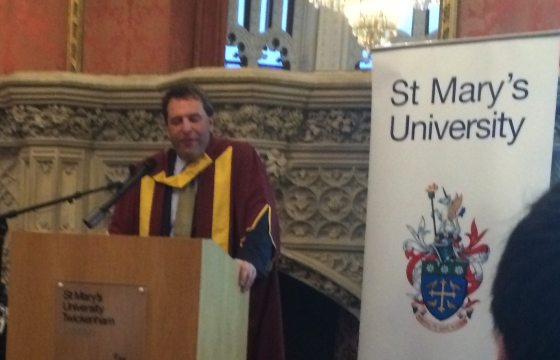Professor Philip Booth delivered his inaugural lecture at St Mary’s University Twickenham this week. In a packed Waldegrave Drawing Room, Professor Booth spoke on the theme of “Regulating Markets in an Economy Without Angels”.
Booth, a former special advisor to the Bank of England on financial stability, argued that much economic policy fails to take realistic account of both human dignity on the one hand and human imperfection on the other. Many regulations are devised with an underlying assumption that governments have perfect information, he said. None has, with the result that they can often be counter-productive. The most notable example he cited was the way regulations and regulators contributed to the 2008 financial meltdown in the United States.
The way forward, he said, was to build a culture where the virtues held sway. At the same time, vices such as greed could find themselves “penalised” through resulting failure rather than government regulation.
Professor Booth pointed out that acting out of self-interest was not always immoral, and selfishness could perhaps be described as disordered self-interest.
He quoted approvingly from Pope Benedict’s encyclical Caritas in Veritate: “Without internal forms of solidarity and mutual trust, the market cannot completely fulfil its proper economic function.” (Caritas in Veritate 35) Vitally important, Professor Booth insisted, is the moral culture in which markets exist. In a culture that recognises that the virtues are necessary for social cohesion, non-governmental forms of regulation arise naturally and have consistently proven their worth.
Professor Fr Martin Schlag, co-founder and academic director of the markets, culture and ethics research centre at the Pontifical University of the Holy Cross, Rome, gave a brief post-lecture commentary.




 Loading ...
Loading ...